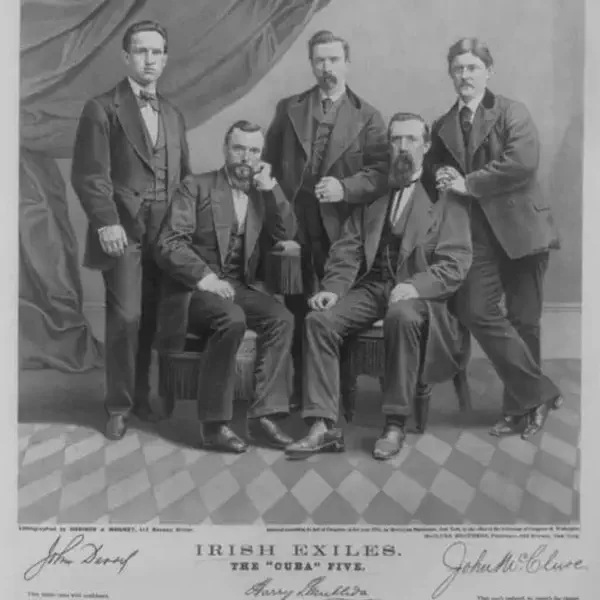
John McLure, Born
July 17, 1846
He is one of 30 Fenian prisoners released in a general amnesty by the British government on January 05, 1871.
Fenian Rising of 1867
The Fenian Rising of 1867 was a rebellion against British rule in Ireland, organized by the Irish Republican Brotherhood, popularly known as Fenians.
They are released on condition that they exile themselves to the country of their choice and not return until their sentences have expired.
Many choose to go to Australia, but John McClure, Jeremiah O’Donovan Rossa, John Devoy, Henry Mulleda and Charles Underwood OConnell, who had all been imprisoned together, decide to go to America and ship out from Liverpool on board the Cuba.
He was jailed numerous times for connections with the Fenian movement, and was finally exiled in 1871, sailing to the United States on board the Cuba with his friend John Devoy, Jeremiah O’Donovan Rossa and two other exiles.
The Cuba Five.
The so-called Cuba Five arrive in New York to a hero’s welcome and even receive a resolution of welcome from the US House of Representatives
The Cuba Five (Irish: An Cúigear Chúba)[1] were a group of Irish rebels released from British prisons in 1871 on condition of not entering Britain (Ireland was then part of the United Kingdom) until the expiration of their original sentences. They chose to accept exile in the United States, travelling on board the ship SS Cuba from Liverpool docks.
The five men were John Devoy, Jeremiah O’Donovan Rossa, Charles Underwood O’Connell, Henry Mullady and John McClure.
On arrival in New York they received a rapturous welcome and attempted to reunite the badly split Fenian Brotherhood. In this they failed, but Devoy and O’Donovan Rossa were to go on to become probably the most outstanding members of the Fenian movement in the US in the late nineteenth and early twentieth centuries.